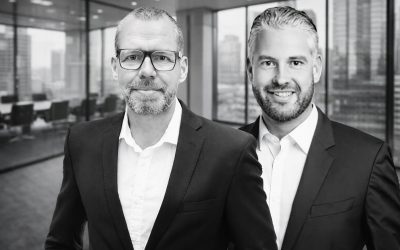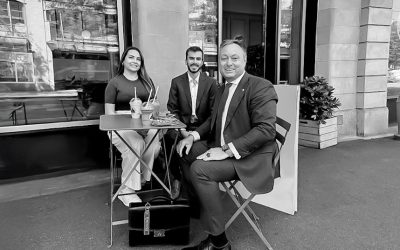The best tips and excuses for finance professionals to go to an interview
Job interviews usually take place during working hours, which can be a huge challenge for bankers and other financial professionals. We spoke to experts about the best way to sneak off to a job interview and what to look out for.
Be careful when lying
“You don’t always have to let grandma die. It’s better to tell half the truth than a whole lie,” recommends career coach Gunnar Belden from Maturias Personalberatung in Frankfurt. “In general, lying is not advisable. Because if it comes out, the price is simply too high. It is a breach of trust.”
Belden also warns against cheating the old employer out of working hours, as this does not go down well with the potential new employer. “No company wants a proven working time cheat.”
HR consultant Matthias Koch from Robert Walters in Düsseldorf reports cases where a candidate pretended to have been stuck in a traffic jam or had an accident in order to go to a job interview. There is a risk that this will come out. “I always recommend a fair approach.”
The classic: a visit to the doctor
If there is no more elegant option, personnel consultant Patrick Riske from Fricke Finance & Legal recommends the classic approach. “A visit to the doctor can be used in nine out of ten cases. However, you shouldn’t lay it on too thick. Visits to the dentist or check-ups are best.” Serious illnesses, on the other hand, are suboptimal. As they only lead to unsolicited inquiries.
The wardrobe must match the excuse
“It happens again and again that the wardrobe doesn’t match the excuse,” warns Belden. This is particularly the case in the back office or IT departments, where people tend to work in jeans and a shirt rather than a suit. “If you turn up in a suit, you attract unwanted attention.”
According to Belden, there are two options in this situation. “You can agree with the potential new employer that you will attend the interview in normal clothes,” says Belden. This would be understood by many employers. Another trick is to schedule the interview for early in the morning or in the evening and simply change your clothes before or after the interview.
The cleaning trick
Another former recruiter reveals the dry-cleaning trick. “Just drop off your suit or costume at a dry cleaner near your workplace a few days beforehand,” says the recruiter, who wishes to remain anonymous. “Then just pick up your clothes before the interview, find a quiet place to change and cut an impeccable figure. After the interview, simply put your clothes back in a bag and go to work in your normal clothes.”
Bundle job interviews
In Riske’s experience, most employers are satisfied with two or three interviews. However, there are also companies that demand much more from candidates. One headhunter from Switzerland even reports that he had to send one of his candidates to 29 (!) interviews – with the same employer, mind you. According to Riske, more than three interviews are more common with foreign employers and companies with a matrix organization. In such cases, he advises candidates to take the afternoon off and conduct several interviews in succession.
If possible, schedule conversations during off-peak times or lunch breaks
Personnel consultant Manuel Rehwald from Rehwald Associates in Frankfurt and Munich advises applicants to schedule job interviews at off-peak times if possible. “Early in the morning, in the evening or at lunchtime. Between 12 and 2 p.m. usually works quite well,” says Rehwald. With modern working time models such as flexitime, trust-based working hours and working from home, this is rarely a problem. “It should actually be possible to go home an hour or two earlier,” says Rehwald. You can also sacrifice half a day or a whole day of vacation. “However, you are not allowed to call in sick if you are not granted leave.” In such a case, an applicant has no choice but to postpone the appointment.
Be careful with frequent postponements
“Employers are quite understanding when candidates cancel an appointment due to a sudden board meeting or customer meeting. However, this shouldn’t happen too often,” warns Koch. “For me, whether someone is able to set up an interview is an indicator of whether they are really interested in the job. Even if a candidate drags out the application process, that’s a bad sign.”
Ask for several suggested dates
Riske recommends that candidates ask for several appointment proposals. The applicant can then choose the most convenient time. “Finding a suitable date for a job interview is often annoying and stressful. But it’s never the case that it will fail.”

Manuel Rehwald
Managing Director, Rehwald Associates GmbH



